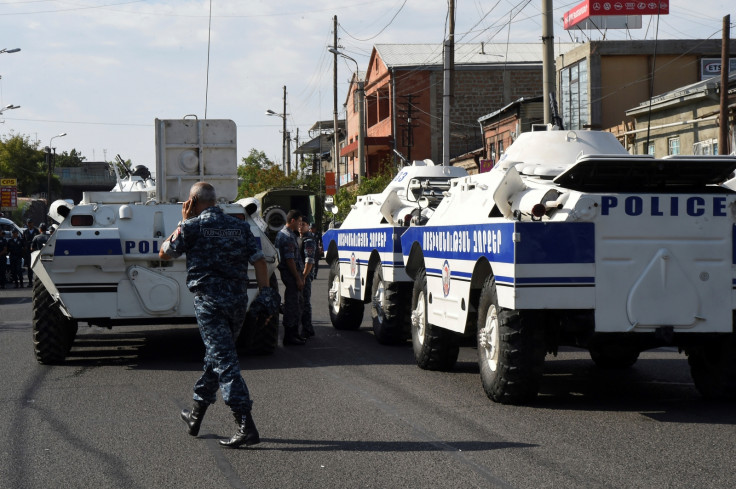Police officer killed as hostage situation begins in Armenia's capital Yerevan
Armed men say there is an uprising and demand release of an opposition leader.

Gunmen stormed a police station, killing one officer and taking a number of hostages, in Armenia's capital Yerevan in what appeared to be a politically motivated attack. Authorities said negotiations were underway to secure the release of an unknown number of people who remained trapped inside the police station in the capital's Erebuni district.
Armenia's National Security Service (NSS) said a group of armed men stormed the building on 17 July, killing a police officer and injuring two more people. The attackers were demanding the release of Jirair Sefilian, an opposition leader arrested last month, the NSS said.
A heavy police presence was reported in the area that was cordoned off with armoured vehicles blocking off the road leading to the station.
A police official speaking on condition of anonymity told AP the attackers numbered about 20, while the hostages were believed to number at least eight.
Founding Parliament, the group believed to be behind the siege, claimed it was starting an uprising to topple the government of President Serzh Sargsyan. The NSS said the assailants were spreading "misinformation" about an armed rebellion and other buildings being seized.
"Such information is absolutely untrue," the security service said in a statement. "Law enforcement bodies are fully in control of the situation."
Access to Facebook appeared to be restricted in the country as the situation unfolded.
Sefilian, a former military commander, is a vocal critic of President Serzh Sargsyan's handling of the conflict in Nagorno-Karabakh, where pro-Armenia rebels have long been fighting to breakaway from Azerbaijan.
More than 30,000 people died as the two countries fought a full-fledged war over the enclave located within Azerbaijan's current territory after the collapse of the USSR in the early 1990s. A ceasefire was brokered by Russia in 1994, but hostilities flared up again last year.
© Copyright IBTimes 2025. All rights reserved.





















